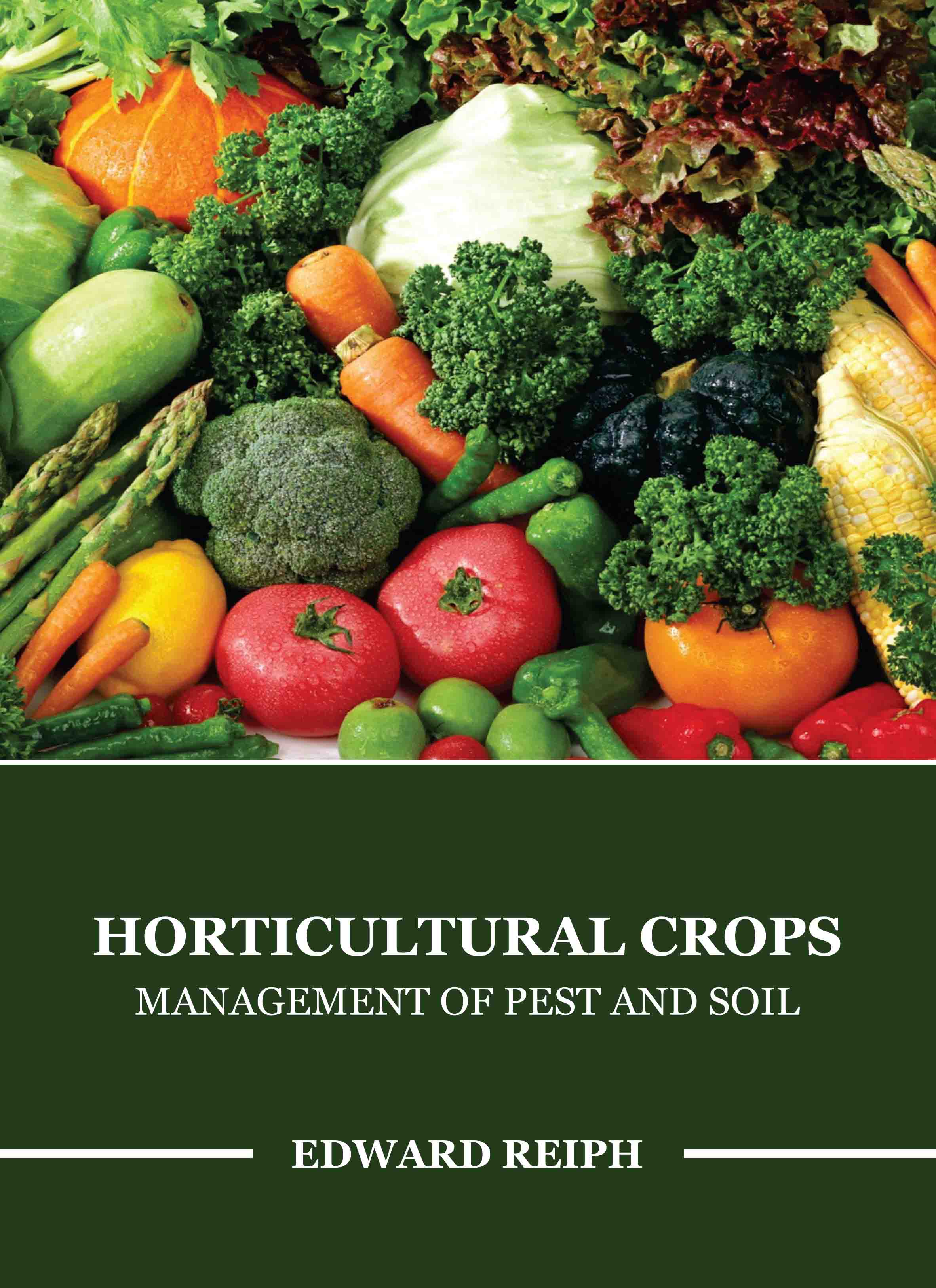
Horticultural Crops: Management of Pest and Soil
by Edward reiph
| ISBN | 9781835350973 |
|---|---|
| Publisher | EDTECH PRESS |
| Copyright Year | 2025 |
| Price | £150.00 |

by Edward reiph
| ISBN | 9781835350973 |
|---|---|
| Publisher | EDTECH PRESS |
| Copyright Year | 2025 |
| Price | £150.00 |
Horticulture is defined as the cultivation of plants, primarily for use as food, building materials, comfort, and ornamentation. For human nutrition, horticultural crops are a significant source of carbohydrates, proteins, organic acids, vitamins, and minerals. Any animal or plant that poses a risk to people or their property, including animals, crops, and trees, is considered a pest. By feasting on all types of plants, including crop plants, forest trees, medicinal plants, and even stored goods, pests have a negative impact on people by causing significant financial loss and lowering the quality of food. Pathogenic or non-pathogenic organisms can cause plant diseases. Horticultural crops are by nature perishable; as a result, they breathe, transpire, and ripen after harvest, lowering their nutritional value for human use. In light of the foregoing, this book discusses productivity-enhancing techniques like the use of high yielding varieties and hybrids, high density planting, micro-irrigation, fertigation, protected cultivation, bio-technological approaches, and integrated nutrient, weed, pest, disease, and nematode management in general and crop-wise in particular. The book's illustrations are high-quality images, further boosting the publication's excellence. The book includes actionable suggestions for increasing productivity coupled with clear writing and simple terminology.